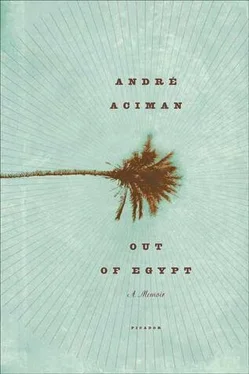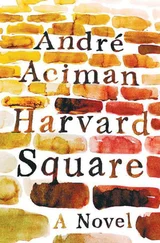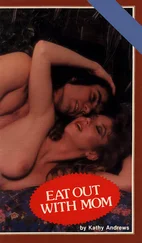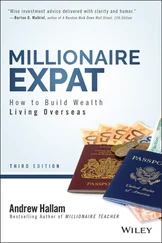A moment of silence elapsed. “Here,” she said, mixing sugar in a glass of water and handing it to my father. It was reputed to calm one’s nerves. “I’m having tea, thank you,” he said. But Abdou, who was still sobbing, said he could use it. Meanwhile, Aunt Elsa kept repeating, “See? I knew it, I knew it. Didn’t I tell you? Didn’t I?” “Do you want to shut up!” shouted her sister, suddenly shoving a large bowl containing last night’s homemade yogurt along the kitchen countertop with such force that it exploded against the wall. “Who cares?” she shouted, anticipating her sister’s reproach. “Who cares at a time like this, who?” She began to pick up the shards while Abdou, still sobbing, begged her not to bother, he would pick them up himself.
It was the noise of this quarrel that finally woke me that Saturday morning. I could tell something was amiss. As happened each time someone died, everyone’s instinct was always to keep the bad news from me. Either the names of the deceased were scrupulously withheld from everyday conversation, or, when the names were mentioned, those present would heave a sigh signifying something nebulous and clearly beyond my scope, adding the adjectival pauvre, poor, to the name of the afflicted like a ceremonial epithet conferred on the occasion of one’s death. Pauvre was used for the departed, the defeated, and the betrayed. “ Pauvre Albert,” my deceased grandfather; “ pauvre Lotte,” my deceased aunt; “ pauvre Angleterre,” who had lost all of her colonies; “ pauvres nous ,” said everyone! “ Pauvre moi ,” said my mother about my father. “ Pauvre fabrique ” was on everyone’s lips that day. The last time they had used that expression was when the factory’s main boiler exploded, severely damaging the building and almost ruining my father.
I found my father sitting in the living room with Kassem and Hassan, whispering instructions to them. When he saw me, he nodded somewhat absentmindedly, a sign that he did not want to be disturbed. I picked up the newspaper — a a grown-up habit I was trying to acquire — and sat by myself in the dining room. I had heard at the American School that all young men in America read the newspaper first thing in the morning with their coffee. Coffee too was on my list. One sipped and thought of things to do that day and then remembered to go on reading one’s newspaper. No yogurt this morning. Instead, the smell of eggs and bacon and of butter melting on toast wafted from the kitchen. I had seen American breakfasts in movies and at school and had instructed Abdou I wanted eggs with bacon every Saturday.
The early-spring sun beamed on the brown table in the dining room, spilling sweeps of light down the backs of the chairs and onto the faded red rug. My grandmother was like me; we liked bright rooms whose shutters were kept open all night and day, liked the clean, wholesome smell of sun-dried sheets or of sun-washed rooms and balconies on windy summer days; liked the insidious, stubborn eloquence of sunlight flooding under the door of a shuttered room on unbearable summer days; even the slight migraines that came from too much sun we liked. Through the window, as always on clear Saturday mornings, sat patches of unstirring turquoise in the distance, rousing the thirst for seawater which all schoolboys in Alexandria knew, and which seduced you into thinking of long hot hours on the summer beaches. Two more months, I thought.
When my grandmother walked into the dining room, she tried to hide that she had been crying. “Nothing,” she replied to my unasked question. “Nothing at all. Here is your orange juice.” She shuffled toward me on her ever-grieving bunions, kissing me on the back of the head, and then pinching my nape. “Mon pauvre,” she said, passing her fingers through my hair. “Couldn’t this have waited a while longer, couldn’t it?” she kept muttering, nodding to herself. Then, sensing I was about to renew my question, she said, “Nothing, nothing,” and drifted out of the dining room. I ate my eggs in silence. Then my mother walked in and sat across from me. She, too, looked upset. Nobody was eating. So they had quarreled. But I hadn’t heard her shouting.
“Look,” she said, “they took everything.”
It was like hearing that someone had died, a sinking feeling in my diaphragm and a tickling at the back of my ears. I pushed my plate away. My mother, whom I had not seen get up, was stirring sugar into a glass of water, saying, “Drink it all up now.” It meant I had had my nerves shaken. I was a man, then.
Even so, I did not fully understand what was so frightful about losing one’s fortune. A few of those we knew who had lost theirs went about living normal, everyday lives, with the same number of houses, cars, and servants. Their sons and daughters went to the same restaurants, saw the same number of movies, and spent as much money as they always had. On them, however, loomed the stigma — even the shame — of the fallen, the ousted, and it came with a strange odor that infallibly gave them away: it was the smell of leather. “Did you smell the abattoir,” was my father’s word for it, whispered maliciously after visiting friends about to leave the country. Every family that had lost everything knew it was destined to leave Egypt sooner or later, and, in one room, usually locked and hidden from guests, sat thirty to forty leather suitcases in which mothers and aunts kept packing their family’s belongings at a slow, meticulous pace, always hoping that things might right themselves in the end. Until the very end, they hoped — and each of their husbands always swore he knew someone in high places who could be bribed when the time came. My father began to boast of the same contacts.
And then it dawned on me. When people came to visit us, they too would sniff out that funny leather smell and whisper abattoir behind our backs as they nosed about our home, wondering where on earth we had tucked all of our suitcases. The abattoir phase was bound to start soon, and with it an accelerated dose of family squabbles. Which store sold which suitcases cheaper? The question would tear our family apart. What articles should we buy for Europe? Gloves, socks, blankets, shoes? No, raincoats. No, hats. More fights. What would we leave behind? Aunt Elsa wanted to take everything. It figures, said my grandmother, who wanted to leave it all behind. Should we tell anyone? No. Yes. Why? More screaming. And finally, the one question bound to send everyone flying into a rage: Where would we settle? “But we don’t even know the language they speak over there.” “Why, did you know Arabic before coming here?” “No.” “So?” “But it’s so cold there.” “And here it was too hot. You’ve said so yourself.”
Meanwhile, we were given a reprieve, and like a baffled prisoner whose sentence has been temporarily commuted, or a stranded traveler whose return trip is inexplicably delayed, we were allowed to move about freely and do as we pleased, our lives suspended, taken over by unreal pursuits. It was well known that the fallen spent more and worried less. Some even started to enjoy Egypt, especially now that they could splurge, knowing they couldn’t take abroad what the government was determined to seize from them. Others took advantage of the respite and did nothing all day save roam about aimlessly and hang around cafés, affecting, they thought, the unruffled dignity of condemned aristocrats.
When finally I spoke with my father that morning, he said it had come as no surprise. He had gone to bed knowing what awaited him in the morning and had told no one, not even Mother. Then I mustered the courage and asked what would happen now. They still needed him at the factory, he said. But that would pass, and then the inevitable would arrive. What? They would ask us to leave. Everything would have to be left behind. Meanwhile, there were some savings tucked away here and there, though technically we owned nothing. They might let us sell the furniture. But the cars were no longer ours. My father would recall old debts. Bound to be ugly, that. I wanted to know who owed him money. He told me their names. I was surprised. Their son was always having new shoes made. “How long, do you think?” I finally asked, like a patient imploring his doctor to say things aren’t so hopeless after all. He shrugged his shoulders. “A few weeks, maybe a month.” Then, pausing, he added, “At any rate, for us it’s finished.”
Читать дальше












